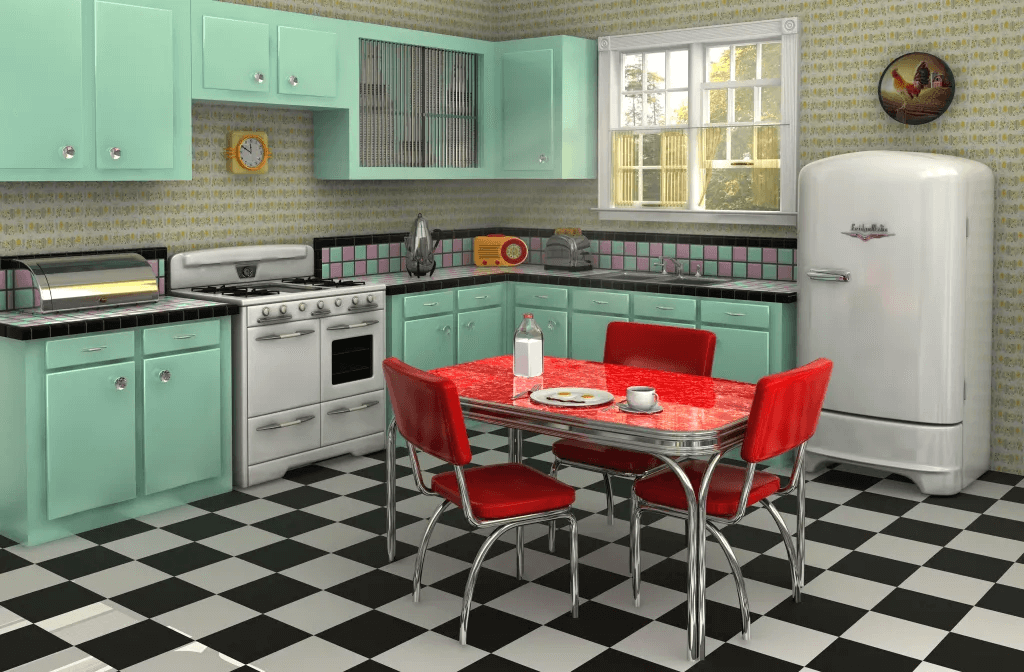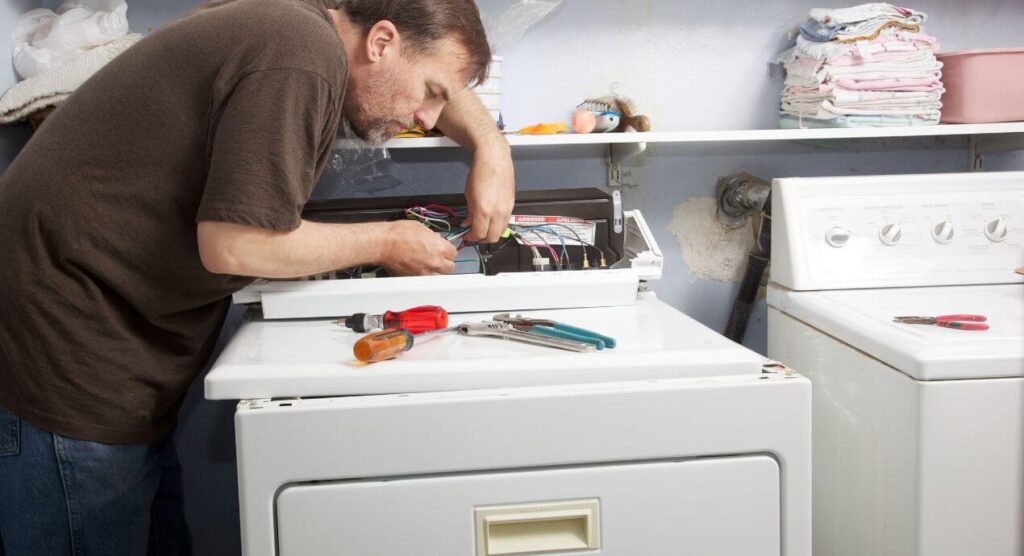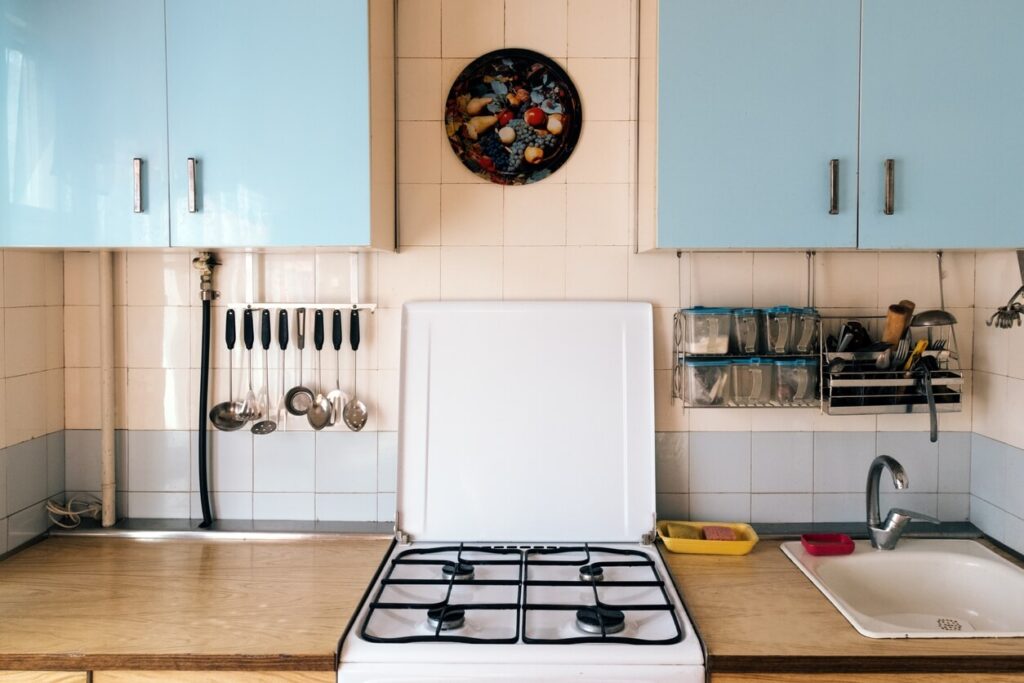
Antique appliances have a unique allure, offering us a glimpse into a time when craftsmanship and design were a testament to artistry and functionality. Collecting these vintage gems is not only a hobby but a passion for many. While the joy of owning and displaying antique appliances is undeniable, it’s equally important to understand how to maintain them to ensure they stand the test of time. In this comprehensive guide, we will delve into the intricate details of preserving and caring for antique appliances.
The Significance of Maintaining Antique Appliances
Before we dive into the nitty-gritty of maintenance, it’s essential to grasp why it’s so crucial to invest time and effort in preserving antique appliances:
- Preservation of History: Antique appliances are more than just relics of the past; they are historical artifacts that offer us a tangible connection to a bygone era. Each appliance tells a story of innovation, design, and the lifestyle of its time. By maintaining these appliances, you are essentially becoming a custodian of history, ensuring that future generations can appreciate and learn from the technology of the past.
- Value Appreciation: Beyond the sentimental value, antique appliances can be a lucrative investment. Well-preserved pieces can appreciate in value over the years. As you maintain your collection, you not only enhance its historical significance but also its market value.
- Aesthetics and Authenticity: The allure of antique appliances goes beyond their functionality. They add a distinct and charming aesthetic to your living space. By preserving them, you maintain the authenticity of your collection, creating a time capsule that transports you to a different era whenever you use or admire them.
Cleaning Antique Appliances: A Gentle Approach
Cleaning antique appliances is the first and most frequent task when it comes to maintenance. However, it is essential to adopt a gentle approach to cleaning to avoid causing any damage to these delicate and often irreplaceable pieces.
Choosing the Right Cleaning Supplies
Selecting the appropriate cleaning supplies is paramount when dealing with antique appliances. The use of harsh chemicals, abrasive materials, or incorrect cleaning products can lead to irreversible damage. Opt for the following gentle cleaning supplies:
- Soft Cloths: Utilize soft, lint-free cloths to prevent scratching or abrasion.
- Mild Soap: A mild, pH-balanced soap mixed with water makes an effective, non-abrasive cleaning solution.
- Vinegar Solution: A mixture of vinegar and water is ideal for removing grime and stains.
- Baking Soda: This household staple can be used for stubborn stains and odors.
A Delicate Cleaning Process
Here’s a step-by-step guide on how to clean antique appliances safely:
- Unplug the Appliance: Safety should always be the top priority. Start by disconnecting the appliance from its power source to ensure you’re not at risk of electric shock.
- Dust Removal: Begin by gently removing dust and loose dirt from the appliance’s surfaces using a soft brush or cloth. A handheld vacuum cleaner with a brush attachment can also be useful.
- Wipe Down Surfaces: Prepare a cleaning solution by diluting a mild soap in water. Dampen a soft cloth with the solution and gently wipe down the surfaces. Take care not to oversaturate the cloth, as excess moisture can seep into the appliance’s inner workings.
- Detail Cleaning: Antique appliances often have intricate parts and crevices that require more precise cleaning. For these, use cotton swabs or soft brushes to reach and clean every nook and cranny.
- Ensure Thorough Drying: Before plugging the appliance back in, ensure it is completely dry. Moisture can lead to electrical issues and corrosion, so take your time with this step.
Cleaning antique appliances is undoubtedly a meticulous process, but the results are worth the effort. A gentle touch and the right cleaning supplies can help maintain the aesthetics and functionality of your treasured items.
Routine Maintenance Tips for Antique Appliances

Regular maintenance is essential to ensure the longevity of your antique appliances. Here are some valuable tips to keep your vintage treasures in working order:
- Oil and Lubrication: Just like a well-oiled machine, antique appliances require proper lubrication. The moving parts in these appliances can become stiff or corroded over time. To keep them functioning smoothly and prevent rust, use a light machine oil. Apply it to the relevant parts, such as hinges and gears, as recommended by the manufacturer.
- Inspect Wiring and Cords: Old wiring and frayed cords can pose serious safety hazards. Regularly inspect the wiring and cords of your antique appliances. If you notice any issues, such as exposed wires or fraying, it’s crucial to consult a professional electrician for repair or replacement. Attempting DIY fixes can be risky and might lead to further damage.
- Maintain a Dry Environment: Moisture is the enemy of antique appliances. To prevent rust, corrosion, and damage to wooden components, store your antique appliances in a dry environment. Avoid basements or areas prone to dampness, and consider using dehumidifiers if necessary.
- Pest Deterrence: Antique appliances can become cozy homes for pests if not properly protected. Use pest deterrents, such as traps or repellent sachets, to keep critters at bay. Regularly check your appliances for any signs of infestation, as pests can cause both cosmetic and functional damage.
Addressing Common Issues with Antique Appliances
As an antique appliance enthusiast, you may encounter common problems that come with age. Here are a few common issues and their respective solutions.
Rust and Corrosion
Issue: Antique appliances are susceptible to rust and corrosion, which can damage both their appearance and functionality.
Solution: Gently remove rust with a fine-grit sandpaper or a rust remover. Once clean, apply a rust-resistant coating to prevent further corrosion. If the rust has penetrated internal components, consider consulting a professional restorer.
Electrical Problems
Issue: Over time, electrical components in antique appliances may degrade, resulting in malfunctions.
Solution: Electrical issues should not be taken lightly. If you suspect problems with the wiring, connections, or electrical components, it’s crucial to consult a professional electrician. Attempting to fix electrical issues on your own can pose serious risks.
Missing Parts and Accessories
Issue: Finding original replacement parts and accessories for antique appliances can be a challenge due to their age and rarity.
Solution: To locate missing parts or accessories, consider joining antique appliance collector forums, networks, or online marketplaces. Engaging with other collectors may lead to the discovery of individuals willing to trade or sell the specific parts you need. Additionally, antique appliance restoration specialists may have access to original or replica parts.
Appliance Smells
Issue: Antique appliances can develop unpleasant odors over time due to the accumulation of dust, grime, and age-related factors.
Solution: To eliminate odors, place a small dish of baking soda, activated charcoal, or coffee grounds inside the appliance. These natural odor absorbers will help neutralize any unwanted smells. Regular cleaning and ventilation can also prevent odor buildup.
Storing Antique Appliances: The Art of Preservation

Proper storage is essential for maintaining antique appliances when they are not in use. Here’s a guide on how to store them to ensure their longevity:
- Thorough Cleaning: Before storing your antique appliance, it’s crucial to ensure that it’s thoroughly cleaned. This includes removing all dust, grime, and any residual cleaning agents. Any moisture or residue left on the appliance can lead to corrosion or mold during storage.
- Wrap in Soft Cloth: To protect your antique appliance from dust and scratches, wrap it in soft, clean cloth. This acts as a barrier against environmental contaminants and minimizes the risk of surface damage.
- Elevate from the Floor: When storing your antique appliances, keep them off the ground. Elevated shelving or platforms are ideal for this purpose. This prevents any potential damage from water or pests that may be present on the floor.
- Control the Climate: Maintaining a stable climate within your storage area is crucial. Extreme temperature and humidity fluctuations can lead to warping, cracking, or other forms of damage to antique appliances. Using a dehumidifier or air conditioning can help regulate the storage environment.
- Regular Inspections: Even in storage, it’s vital to conduct periodic inspections of your antique appliances. This ensures that they remain in good condition and allows you to address any issues promptly. Look for signs of rust, corrosion, pest infestations, or any other potential problems.
A Collector’s Pride: Embracing the Challenge
Collecting antique appliances is more than a hobby; it’s a passion that fosters a deep appreciation for the craftsmanship and ingenuity of bygone eras. Maintaining these historical treasures is not just a responsibility; it’s a labor of love. Embrace the challenge of caring for your antique appliances, learn from the past, and revel in the satisfaction of preserving these remarkable pieces for generations to come.
In conclusion, antique appliances are like fine wine; they only get better with age. They embody the spirit of innovation and artistry of their respective times, making them invaluable pieces of history. The process of maintaining antique appliances is an art that combines meticulous care, knowledge, and a deep respect for the past. So, do you have any cherished antique appliances in your collection? What’s your favorite tip for keeping them in tip-top condition? Share your thoughts and experiences in the comments below, and let’s continue celebrating the magic of these timeless treasures.
Frequently Asked Questions (FAQ) – Maintaining Antique Appliances: A Collector’s Guide
In this FAQ section, we address common queries related to the maintenance of antique appliances. Whether you’re a seasoned collector or just starting out, these answers will provide you with valuable insights on preserving your vintage treasures.
1. Why is it important to maintain antique appliances?
Maintaining antique appliances is crucial for several reasons. It preserves the historical value of these items, potentially increases their investment worth, and ensures their authenticity and functionality. Neglecting maintenance can lead to deterioration, loss of value, and even safety risks.
2. How often should I clean my antique appliances?
The frequency of cleaning your antique appliances depends on factors such as usage, the appliance’s condition, and the environment it’s stored in. As a general rule, perform light cleaning and dusting regularly, and deep cleaning annually or as needed.
3. What cleaning products should I use for antique appliances?
For cleaning antique appliances, use mild and non-abrasive supplies. Opt for soft cloths, a mild soap solution, vinegar, or baking soda. Avoid harsh chemicals that can damage the appliance’s finish and delicate components.
4. Can I use modern cleaning products on antique appliances?
It’s best to avoid modern cleaning products, especially those with abrasive or harsh chemicals. These can harm the antique’s finish and delicate surfaces. Stick to gentler, time-tested cleaning solutions as mentioned in question 3.
5. How can I address rust and corrosion on antique appliances?
To tackle rust and corrosion, gently remove the rust with fine-grit sandpaper or a rust remover. Once clean, apply a rust-resistant coating to prevent further corrosion. For internal components affected by rust, consult a professional restorer for expert guidance.
6. What do I do if my antique appliance has electrical problems?
If you suspect electrical issues with your antique appliance, such as frayed cords or faulty wiring, it’s essential to consult a professional electrician. Attempting DIY fixes can be dangerous and might lead to further damage or safety hazards.
7. Where can I find replacement parts and accessories for antique appliances?
Finding replacement parts and accessories for antique appliances can be challenging due to their age and rarity. Consider joining antique appliance collector forums, networks, or online marketplaces where fellow enthusiasts may have what you need. You can also reach out to antique appliance restoration specialists who may have access to original or replica parts.
8. What’s the best way to store antique appliances?
To store antique appliances effectively, follow these steps:
- Ensure the appliance is thoroughly cleaned and dry.
- Wrap it in soft, clean cloth to protect against dust and scratches.
- Elevate the appliance from the floor to prevent damage from moisture and pests.
- Maintain a stable climate in the storage area by using a dehumidifier or air conditioning.
- Conduct regular inspections to check for issues like rust, corrosion, or pest infestations.
9. Can I use antique appliances that are well-maintained?
Yes, well-maintained antique appliances can often be used safely and effectively. However, it’s essential to consider their age and condition. For functional and safety purposes, consult with a professional electrician to ensure they are in good working order before using them.
10. What should I do if I find a valuable antique appliance that needs restoration?
Restoring a valuable antique appliance is a specialized task that should be entrusted to experts in antique appliance restoration. Attempting DIY restoration on a valuable piece can lead to irreversible damage. Consult with professionals who have experience in restoring similar items to ensure the preservation of their historical and market value.